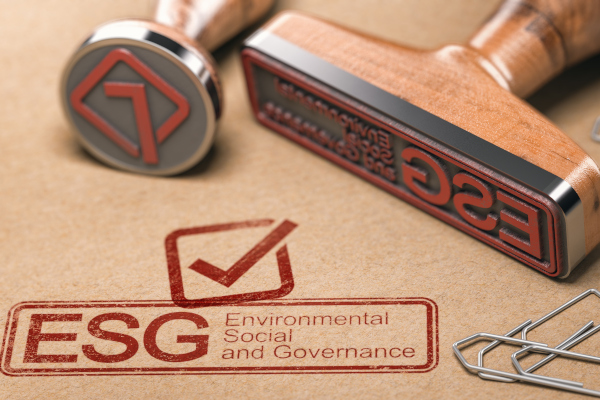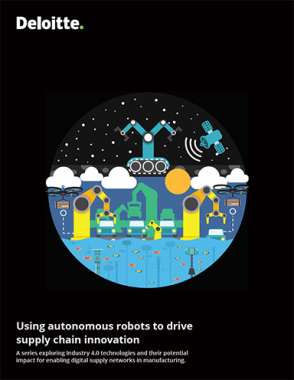Supply Chains Struggle to Access Reliable Emissions Data from Suppliers
Changing regulatory environment creates challenges and opportunities
Continued regulatory pressure to maintain and report the impact of your supply chain on the environment is not slowing any time soon. And with that comes both challenges and opportunities for companies that integrate ESG goals into their business strategy.
California recently introduced legislation that would require large companies doing business in the state to disclose the number of emissions they create. It would be the first mandate of its kind in the U.S. and is in line with the SEC’s recent proposal to shift from a voluntary to mandate-based emissions reporting system for many businesses.
These types of legislation are also gaining traction globally, most significantly in Germany with the Supply Chain Due Diligence Act. The law, which into come force at the start of this year, requires companies with 3,000 or more employees to monitor the operations of their and their suppliers’ supply chains for human labor and environmental issues.
“If we focus specifically on Scope 3 emissions, which are part of a company’s overall climate impact, many organizations have expressed challenges when engaging suppliers and customers for timely and accurate data.”
In light of these regulations, many businesses have voiced concerns that they don’t have access to reliable data to make those changes.
“If we focus specifically on Scope 3 emissions, which are part of a company’s overall climate impact, many organizations have expressed challenges when engaging suppliers and customers for timely and accurate data,” says Cynthia Cummis, audit & assurance sustainability & climate leader for Deloitte. “Difficulties in accessing reliable data is a barrier when working with value chains to mitigate harmful emissions, especially for those within industries with thousands of suppliers or when the most significant emissions are far upstream and the company has no insight into these suppliers.”
Despite these challenges, Cummis adds that working with partners in your supply chain to develop ESG or sustainability reporting also creates opportunities.
“Engaging with customer and suppliers on scope 3 emissions can provide significant opportunities to build trusting relationships with suppliers and customers, reduce supply chain risk, improve supply chain resilience, and identify strategic business opportunities,” she says.
How to move forward with ESG reporting
Beyond legislation, many large companies internally have already set their own goals around sustainability. These goals include commitments to measure, manage, and monitor both supplier and internal performance.
Today, companies are at various stages on the sustainability maturity curve, Cummis says, noting that depending on where they fall will impact how they move forward.
Companies that are just starting on their journey “may need to consider their organizational structure and ownership over ESG reporting,” says Cummis. “For more established brands, they may need to lean in on different pieces of their strategy.”
To overcome the data challenges, Cummis recommends companies work to improve their internal systems and processes, bringing on a staff capable of managing ESG data in a way that is suitable for mandatory disclosure. Improving existing practices in the long run will generate higher quality data, which she adds “should lead to better decision-making to address the risk and opportunities from climate change.”
Cummis also recommends the following steps for companies placing a focus on sustainability reporting:
- Start with a current state understanding. What ESG information is currently disclosed?
- Establish or enhance governance structures to drive a greater discipline around sustainability materiality determination. What ESG impacts are relevant to your business and how are you integrating a control rigor and broader data considerations into analysis?
- Understand the current control environment. What data is available, and in what systems? Who is responsible?
- Perform gap assessment to regulatory requirements and underpinning standards.
- Integrate assurance readiness and assurance to help accelerate preparation.
Regulations are catalysts for change
According to Deloitte’s CxO Sustainability Report, 65% of executives said the changing regulatory environment led their organization to increase climate action over the last year.
While regulations may jumpstart ESG initiatives, Cummis says that executives also anticipate business benefits to integrating sustainability into business strategy. According to Deloitte’s Sustainability Action Report, more than half name talent attraction and retention (52%), increased efficiencies and ROI (52%) and building stronger stakeholder trust (51%) as potential business outcomes of enhanced ESG reporting.
“At the end of the day, integrating ESG reporting into an organization’s overall business strategy, including supply chain management, will create long-term value,” says Cummis.
Article Topics
Deloitte News & Resources
MHI Report: Investment increases as supply chains become more tech-forward and human-centric Global Trade Tensions, Material Shortages Not Expected to Ease in 2024 Blockchain in Supply Chain Continues to Mature Supply Chains Struggle to Access Reliable Emissions Data from Suppliers State of the industry: MHI releases annual report at ProMat 2023 MHI and Deloitte launch 2023 Annual Industry Report survey How Amazon Is Preparing For Fully-Electric Drone Delivery More DeloitteLatest in Supply Chain
A Look at Baltimore’s Key Bridge Collapse—One Month Later European Parliament Passes New Law Requiring Supply Chain Accountability Baltimore Continues Bridge Recovery With Opening of New Channel How Shippers Can Prep for Hurricane Season Apple Accused of Multiple Human Rights Violations South Korea Finally Overtakes China in Goods Exported to U.S. UPS Struggles in First Quarter With Steep Earnings Decline More Supply ChainAbout the Author















